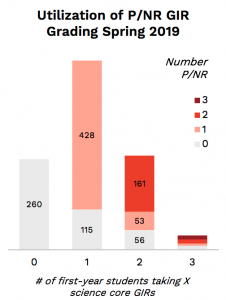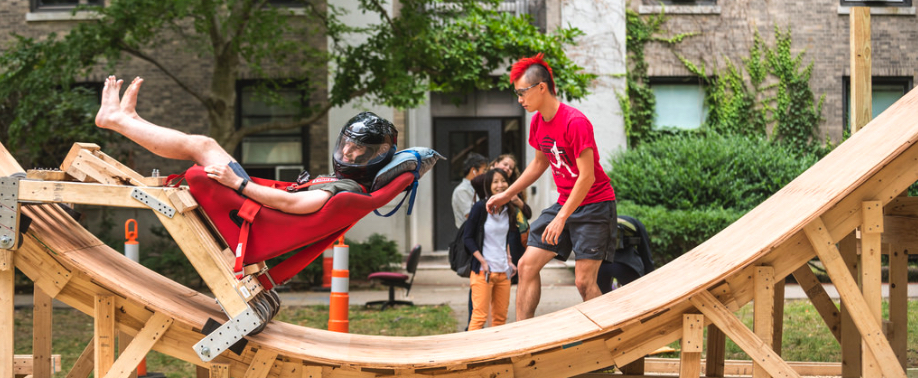CUP Experiment – Phase 1
In August of 2018 the Committee on the Undergraduate Program (CUP) agreed to move forward with an experiment to investigate ways to promote greater exploration in the first-year undergraduate experience.
The proposal was made possible through a marvelous collaboration between students, faculty, staff and administrators over the last year and incorporates some specific recommendations from the Designing the First Year at MIT course (spring FYE ’18).
Aspects of the experiment – Phase 1
- Control Group (Class of 2021)
- Test Group (Class of 2022)
- Up to 3 Science Core GIRs may be taken P/NR after first semester (declare by ADD date)
- New messaging: first year is for exploration
- Improved roadmaps for majors
- Development of more exploratory options
- Initial list from departments had 190 subjects
- Also identified first-year UROP coordinators for departments and other opportunities
Key Insights

Registration data from Spring 2019 indicates that students are actively taking advantage of the P/NR grading option.
Preliminary results suggest that the experiment is enabling students to explore more broadly. At the same time, many continue to take science core GIR subjects early in their time at MIT. Students who do so cite reasons such as catching up to their peers, satisfying prerequisites for majors of interest, or using certain GIRs (typically chemistry or biology) as exploration opportunities.
- Compared to fall 2017, there were 538 fewer first-year enrollments in science core GIRs in fall of 2018 (about one fewer science core GIR for every other student). In spring 2019, the drop in science core enrollment was smaller, with 183 fewer enrollments compared to spring 2018.
- Students used the freed-up units in a variety of ways: taking 14% more unique subjects (which increased from 280 to 318) in the fall. Seventy-five percent of these were subjects specifically designated by departments as being good for exploration. The number of unique subjects taken in the spring increased, but only by 7% (from 403 to 431).
- Taken as a whole, on average, this means that about three quarters of the students registered for one fewer science core GIR in the first year.
We have an early sense of the different ways students are taking advantage of the increased flexibility to explore majors, minors, and concentrations.
- The students who are exploring fall roughly equally into three categories (based on the work of the prior CUP Study Group on Undergraduate Majors Exploration):
- Focused: they are firm about their desired major upon entry to MIT and seek to engage and explore within that major.
- Focused/open: they have 2-4 different majors in mind and seek to explore to choose among them.
- Open: they have no idea what their major will be and seek to explore to discover their major interest.
- Our interview research suggests that further subcategories exist, such as Focused+ (students who have a firm idea about one major but are contemplating a double major). The interviews also identified a cross-cutting category labelled “Topical Focus” which includes students who have identified an issue or topic they wish to pursue and are focused on identifying the course that will best prepare them to pursue that career or interest.
There was no change in hidden GPA for the full year, but statistically significant shifts were observed in component groups such as a drop in spring science core GPA and a rise in spring HASS GPA.
To augment the experiment, the Office of the Vice Chancellor (OVC) offered support to departments for developing subjects to aid students in major exploration.
- Eight new subjects were created and offered this year, a handful of others were revised and advertised with OVC support, and at least two more will be offered during AY2020.
- For details see: https://ovc-archive.mit.edu/strategic-priorities/faculty-call-for-exploratory-subjects/
Important open questions remain about the experiment’s current and longer-term impacts that we are committed to answering.
- How does taking classes on P/NR (either in the first semester or thereafter) impact performance in those classes and in subsequent classes that rely on that material?
- Does taking science core GIRs on P/NR impact reported levels of academic stress?
- How does the policy affect student confidence in their choice of major? How does it affect satisfaction with the major after graduation?
